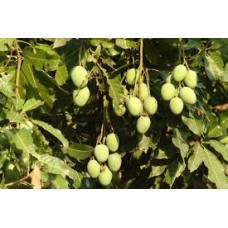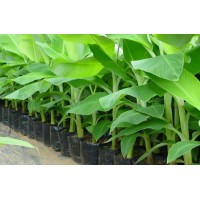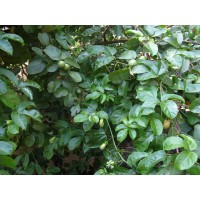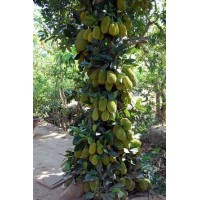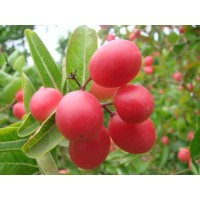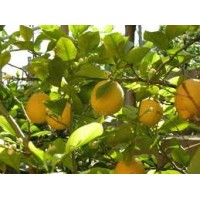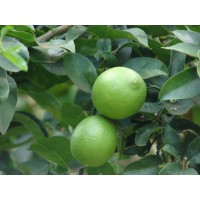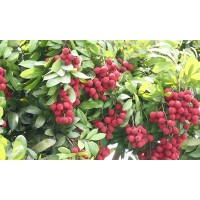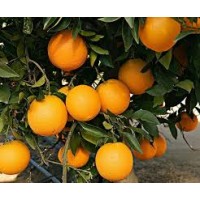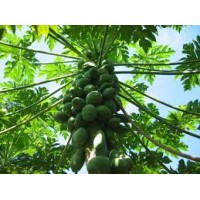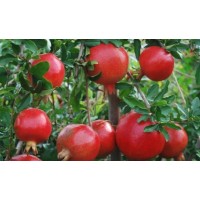Mango trees are profound established, symmetrical evergreens that accomplish statures of 90 feet and widths of 80 feet. Mango trees have basic exchange lanceolate leaves that are 12 to 16 inches long and yellow-green, purple, or copper in shading when youthful. Developed leaves are rough, reflexive, and dark green in shading. New leaves emerge in terminal development flushes that happen a few times each year. Full grown terminal branches bear pyramidal bloom panicles that have a few hundred white blossoms that are around a 1/4 crawl wide when open. The majority of the blossoms capacity as guys by giving dust, yet some are androgynous and set natural product. Fertilization is by flies, wasps, and honey bees.
The organic product weighs around 1/4 pound to 3 pounds. Organic product might be round, praise, or obovate relying upon the assortment. The juvenile organic product has green skin that slowly turns yellow, orange, purple, red, or mixes of these hues as the natural product develops. Full grown natural product has a trademark aroma and a smooth, slight, intense skin. The tissue of ready mangos is light yellow to orange. The substance is succulent, sweet, and here and there stringy. Some undesirable seedlings or assortments are depicted as having a turpentine-like off-taste. The organic product has one seed that is smoothed and adheres to the tissue. The seed contains one or more developing lives relying upon the assortment or sort.
Mangos can be developed on an extensive variety of soil sorts, from light sandy topsoils to red mud soils. Soil pH of 5.5 to 7.5 is favored. Profound rich soils give the best creation and natural product quality. All around depleted soils are suggested. Respectably inclining locales are additionally prescribed to anticipate waterlogging. Profound soils without impermeable layers allows the advancement of profound taproots that guides in dry season resilience and wind resistance.
Employments:
Mango can be eaten crude as a sweet organic product or handled to different items. Ready organic products can be cut and canned or handled to juice, jams, jams, nectars and jelly. Eastern and Asian societies use unripe mangos for pickles, chutney and relishes. In India, unripe mangos are cut, dried, and made into powder for amchoor, a conventional Indian readiness utilized for cooking.
In India, flour is produced using mango seeds. Seeds are likewise eaten amid times of nourishment deficiencies. The timber is utilized for water crafts, deck, furniture and different applications.
Crude mango comprises of around 81.7% water, 17% starch, 0.5% protein, 0.3% fat, and 0.5% slag. A 100 g (3.5 oz) serving of crude mango has 65 calories and about a large portion of the vitamin C found in oranges. Mango contains more vitamin A than generally natural products.
Mango plants
- Brand: INDIA PLANTATION
- Product Code: Mango plants
- Availability: In Stock
-
Rs 120.00
- Ex Tax: Rs 120.00

